Meantime
Kilburn Arches, London, with JJ Lincoln, 2018. Curated by Vlada Tcharyeva. Part of Art Licks 2018.
JJ Lincoln obtained access to two railway arches in Kilburn pending the redevelopment of the area at a time in the near future. He invited me to collaboratively navigate this situation. A dialogue between us developed on the nature of the collaboration, whereby each attended separately, communicating through leaving voice recordings and visual material for the other.
Arch 1, lower floor: audio of JJ Lincoln first encountering and narrating a piece of video footage left by me, which is only seen when the viewer reaches the upper floor. Lincoln describes the power relations between the two, and refers to one man as ‘the master’ and the other as ‘the subject’.
Arch 1, upper floor: found video titled ‘First Aid, Life Saving and Resuscitation’, produced by the Massachusetts Institute of Technology in 1933. Multiple demonstrations of one man saving another from drowning are presented. A significant portion is dedicated to the phenomenon of ‘death grips’ - namely the belief that a drowning person could, in the last stages of life, grip their rescuer with such force that they would both drown. Rescuing, then, involved being able to break these death grips: disengaging from front and back strangleholds, and single and double wrist locks. The blond-haired man’s seeming aggression and domination in the demonstration is a form of self-defence; a mechanism by which he can disentangle himself from a death grip that would kill them both, and continue the engagement on his own terms to save them.
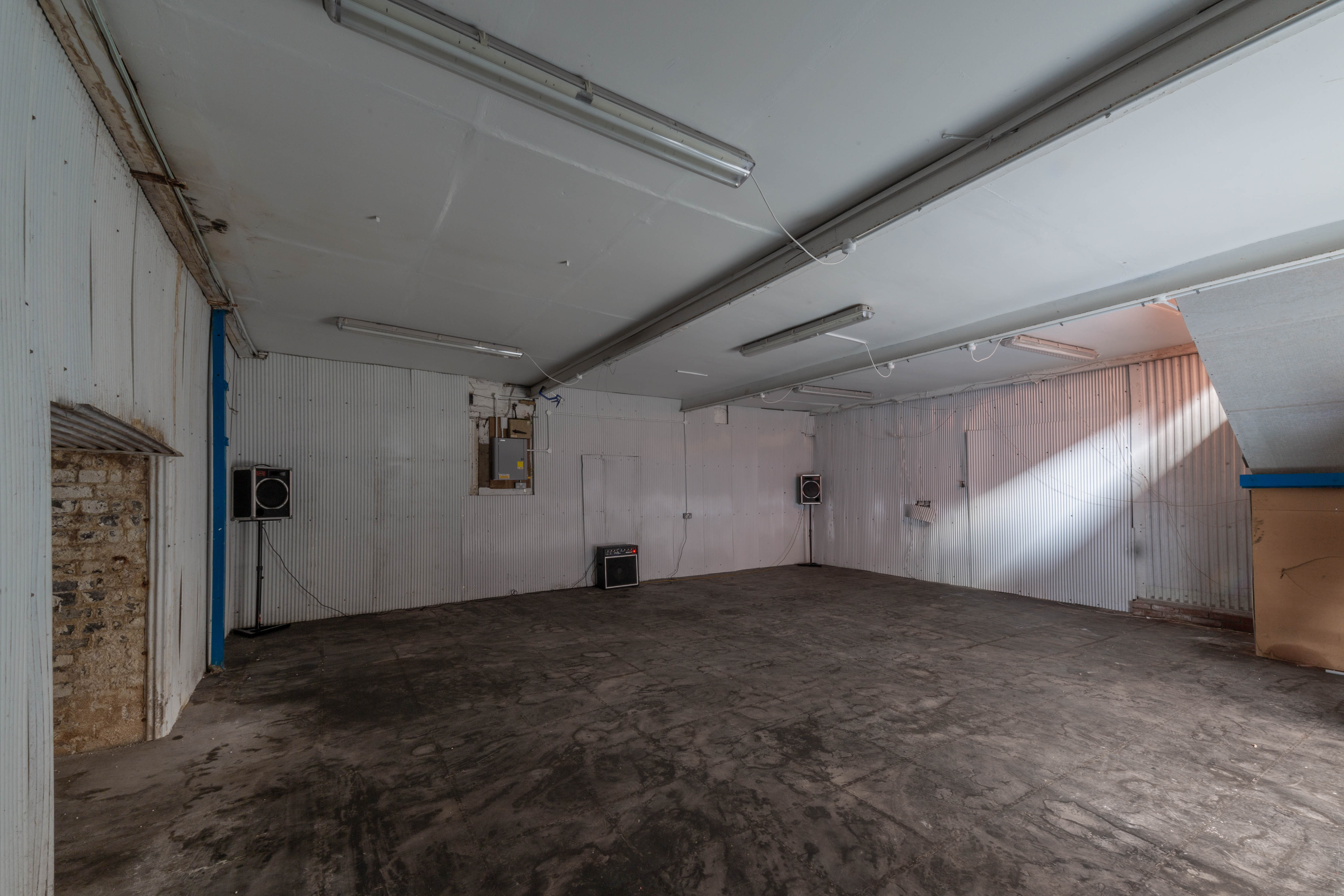
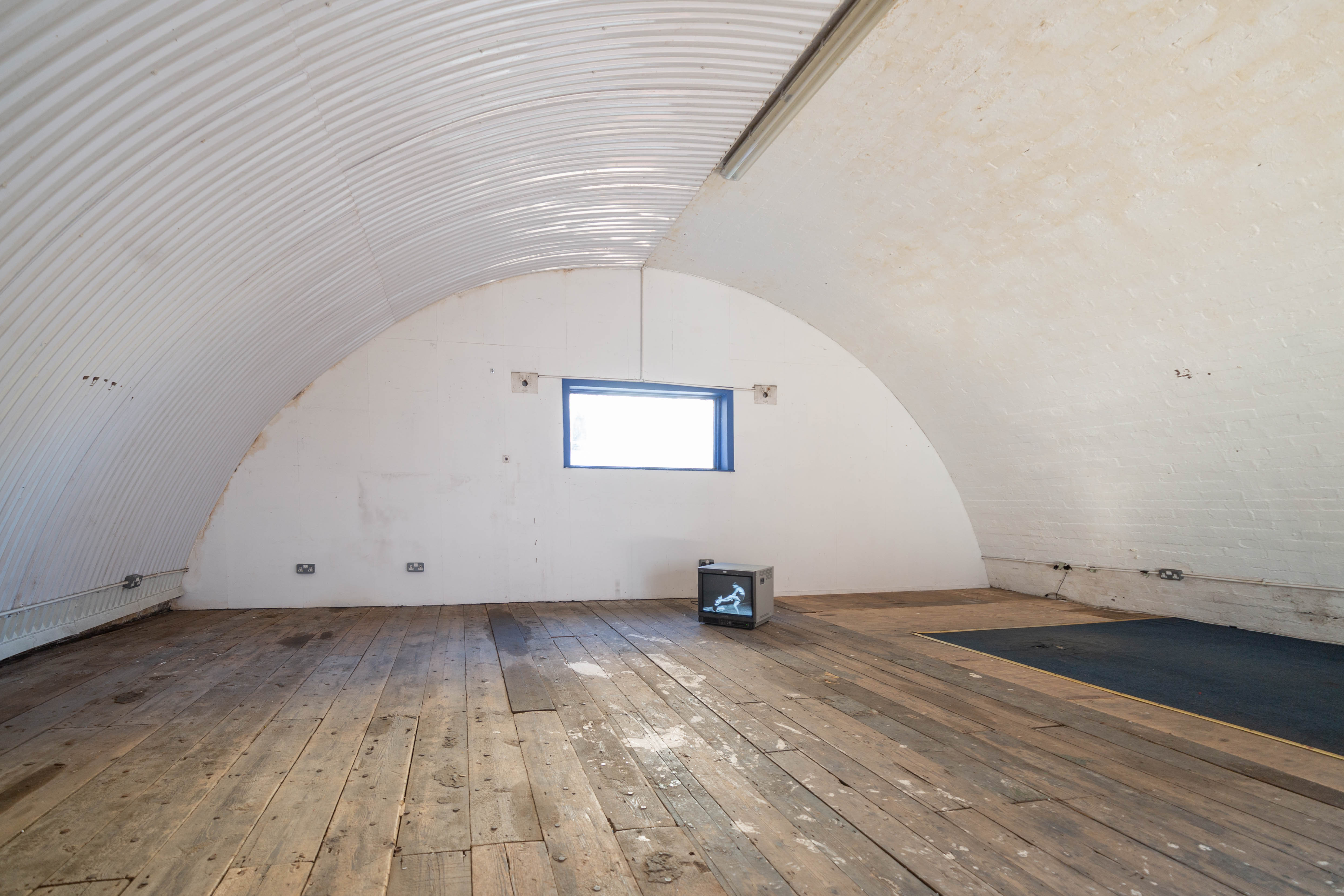


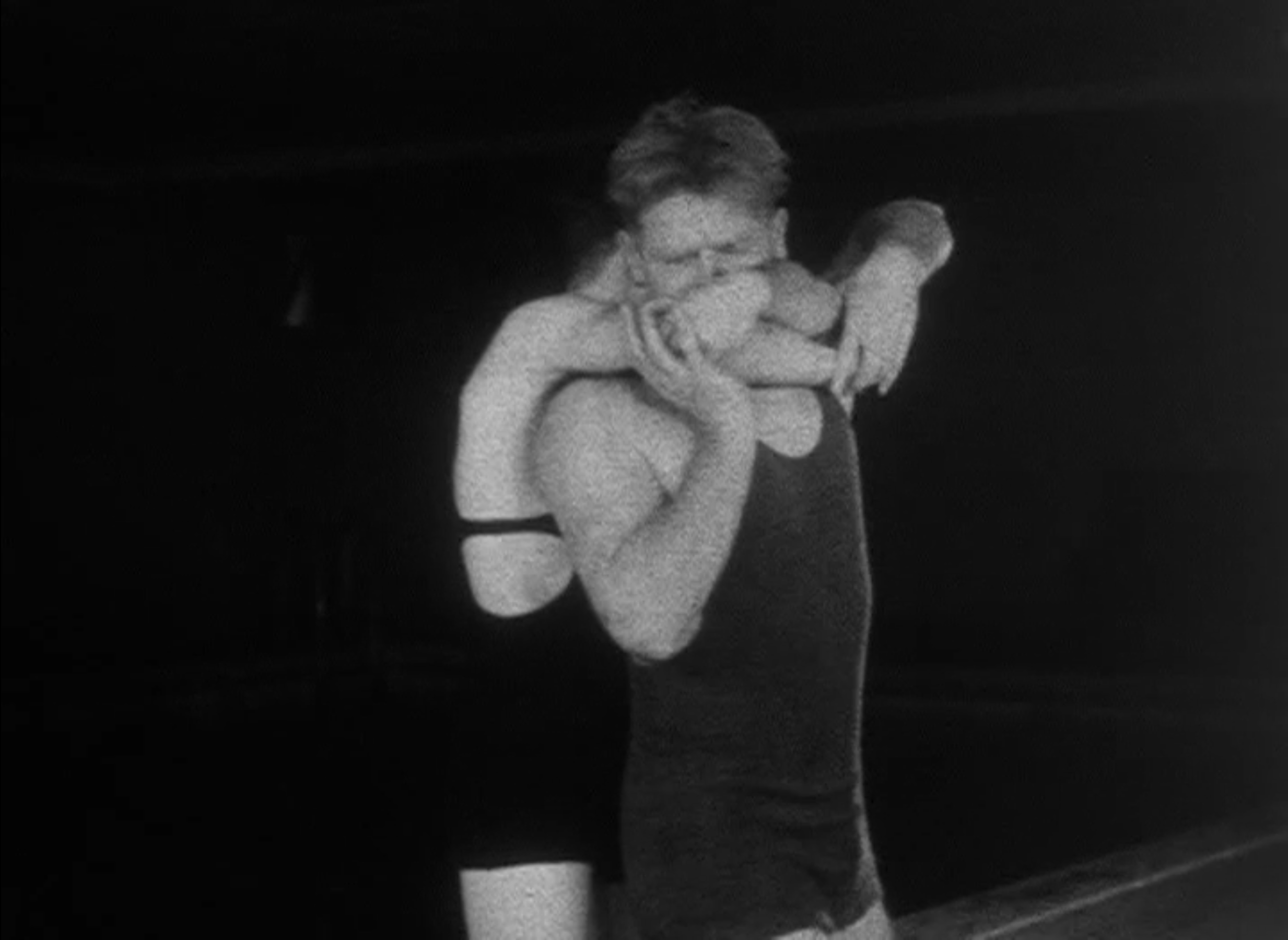
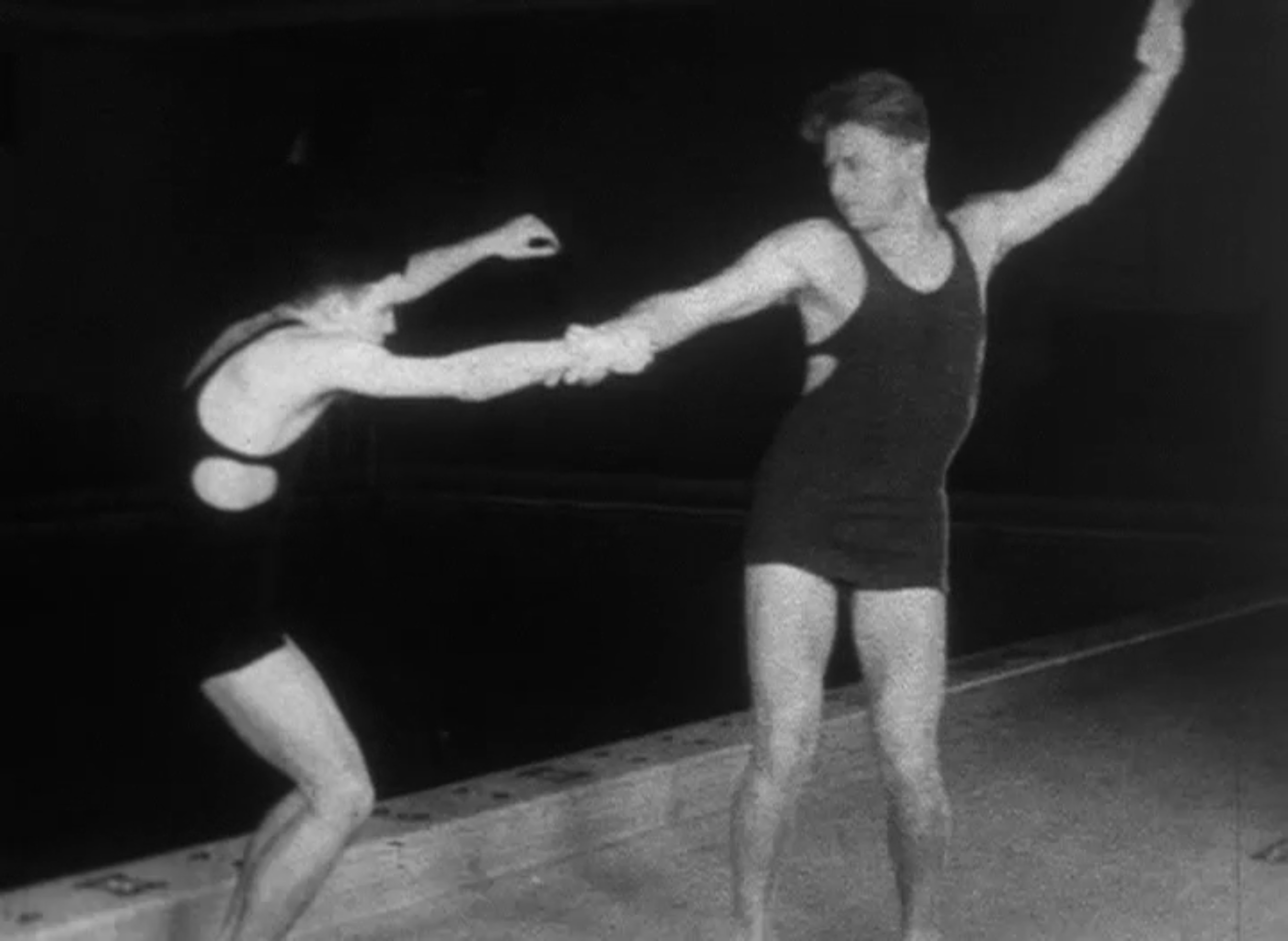
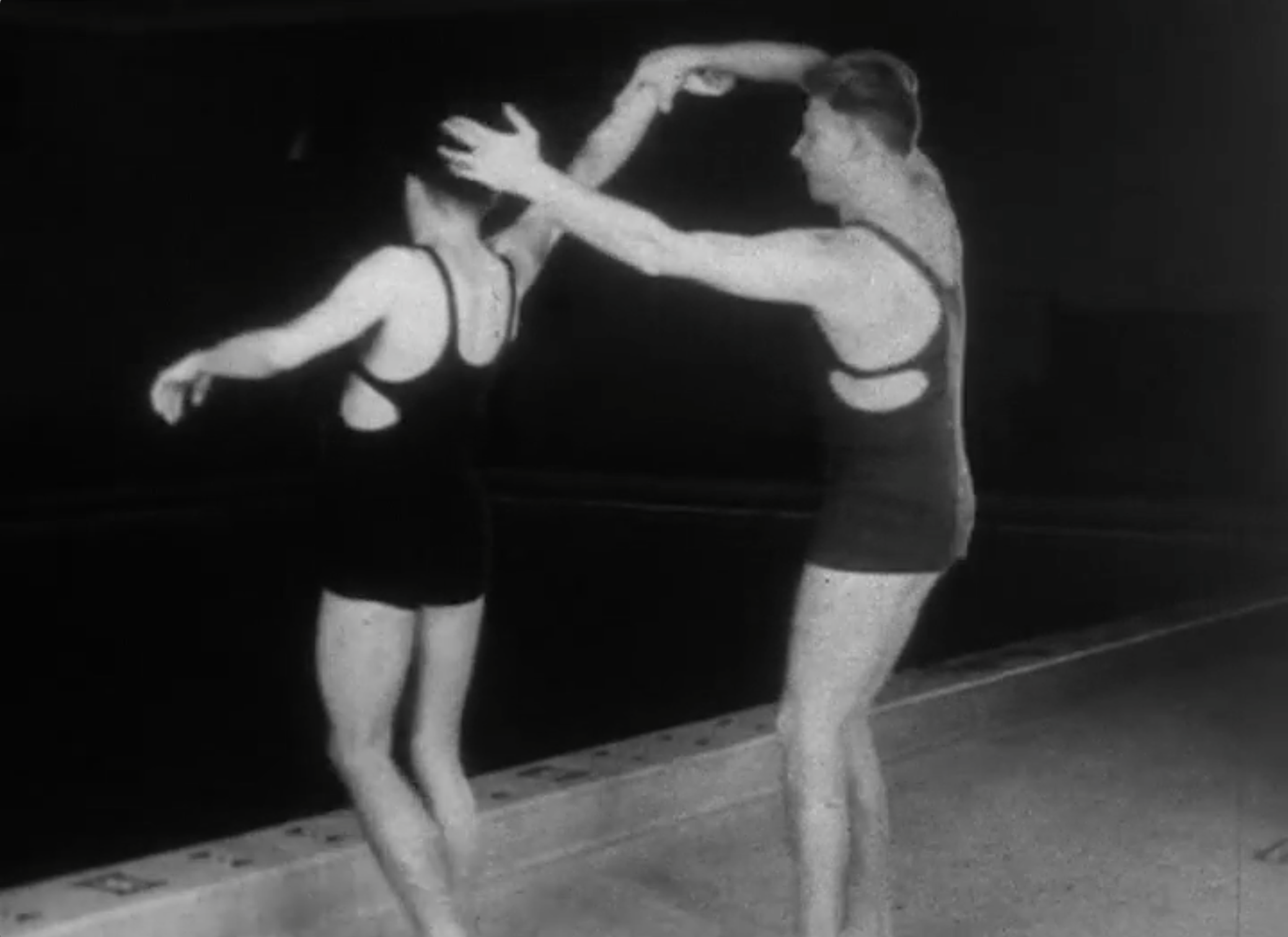
Arch 2: A simulated office and board room environment as a site of bureaucratic analysis. A powerpoint slideshow on loop in the board room plays diagrams schematising forms of interdependence drawn by myself and JJ Lincoln. A folder on the board room table presents a transcript of the voice-recorded memos between the us. Framed documents and leaflets in the space include guides for medical interviewing techniques.
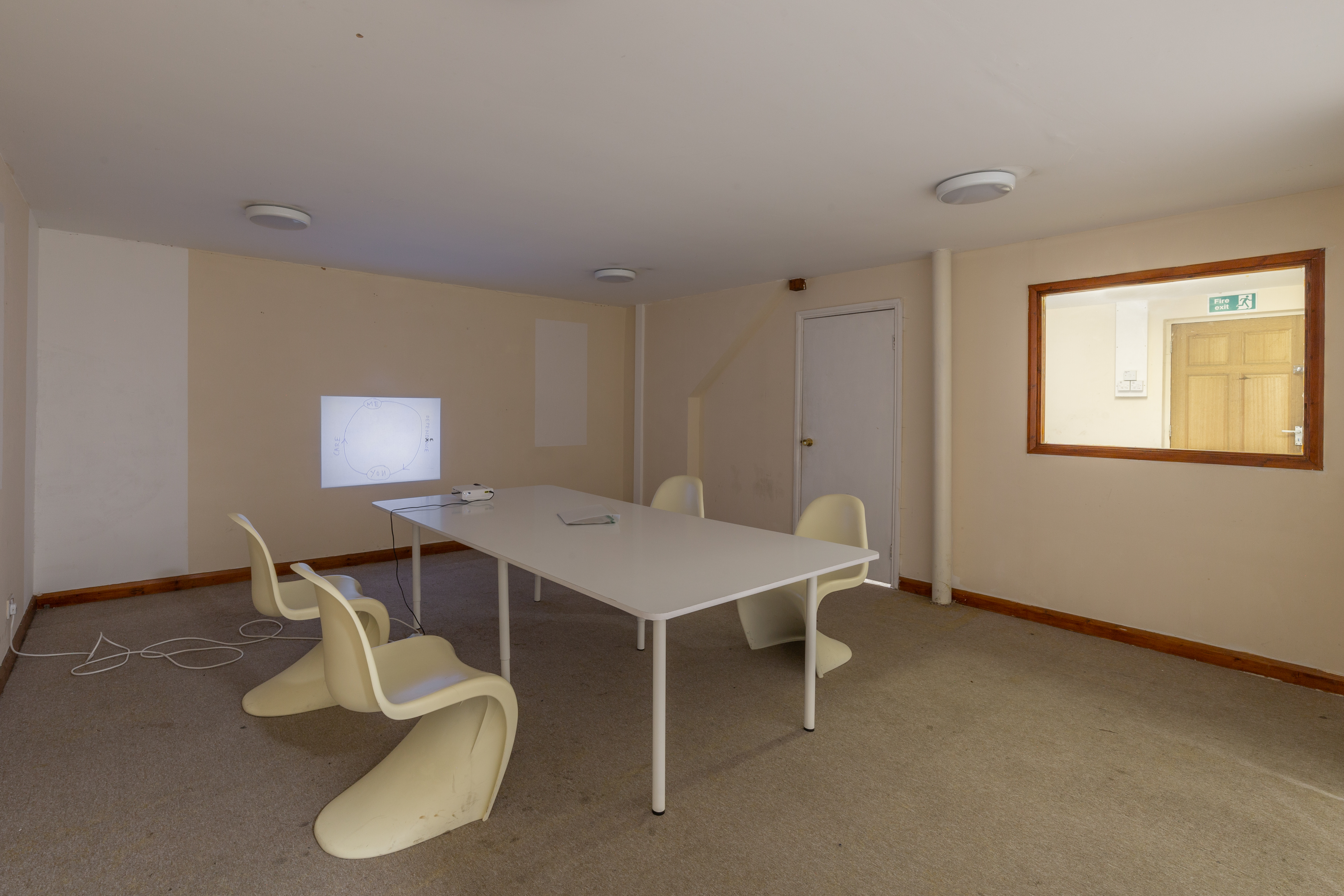

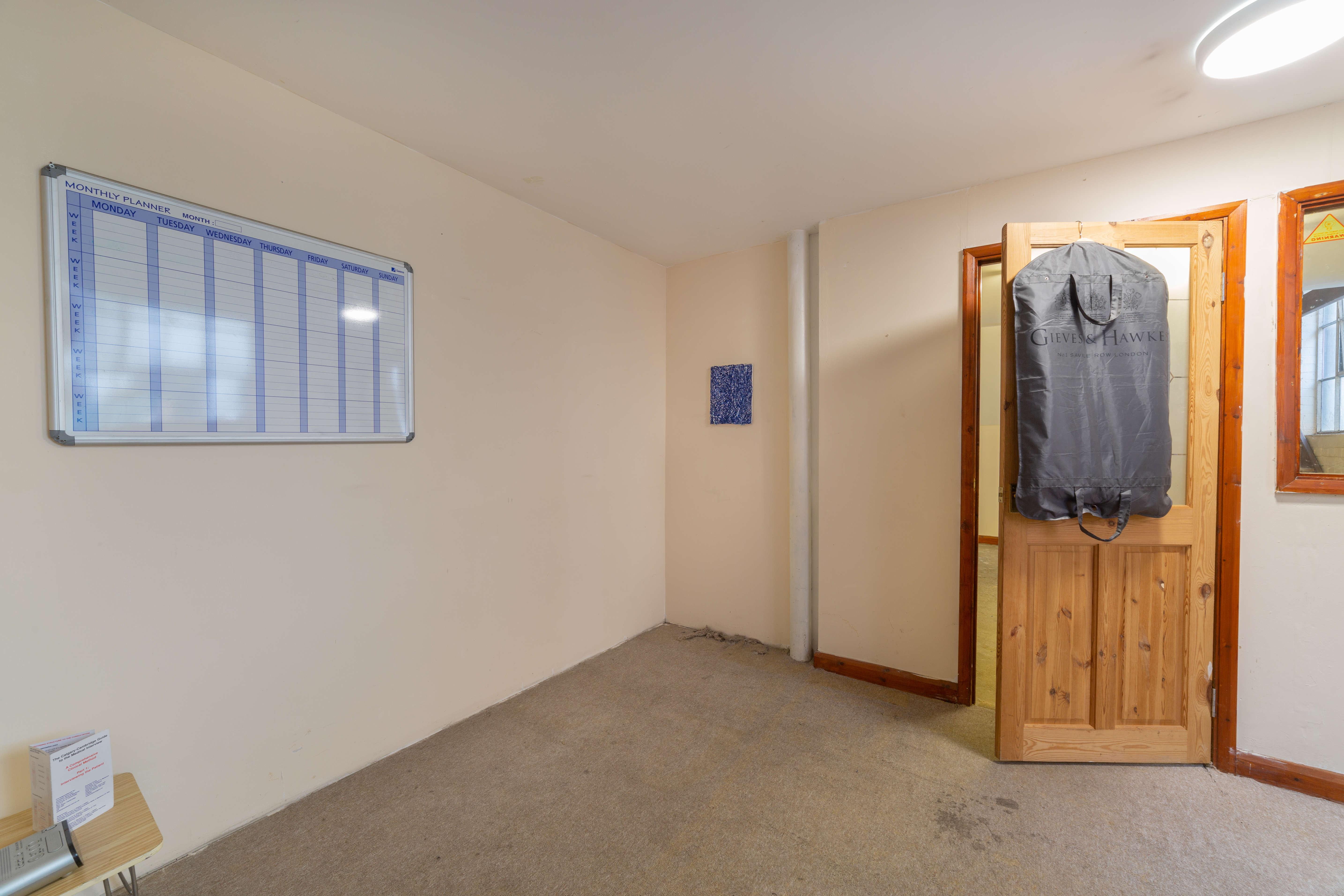

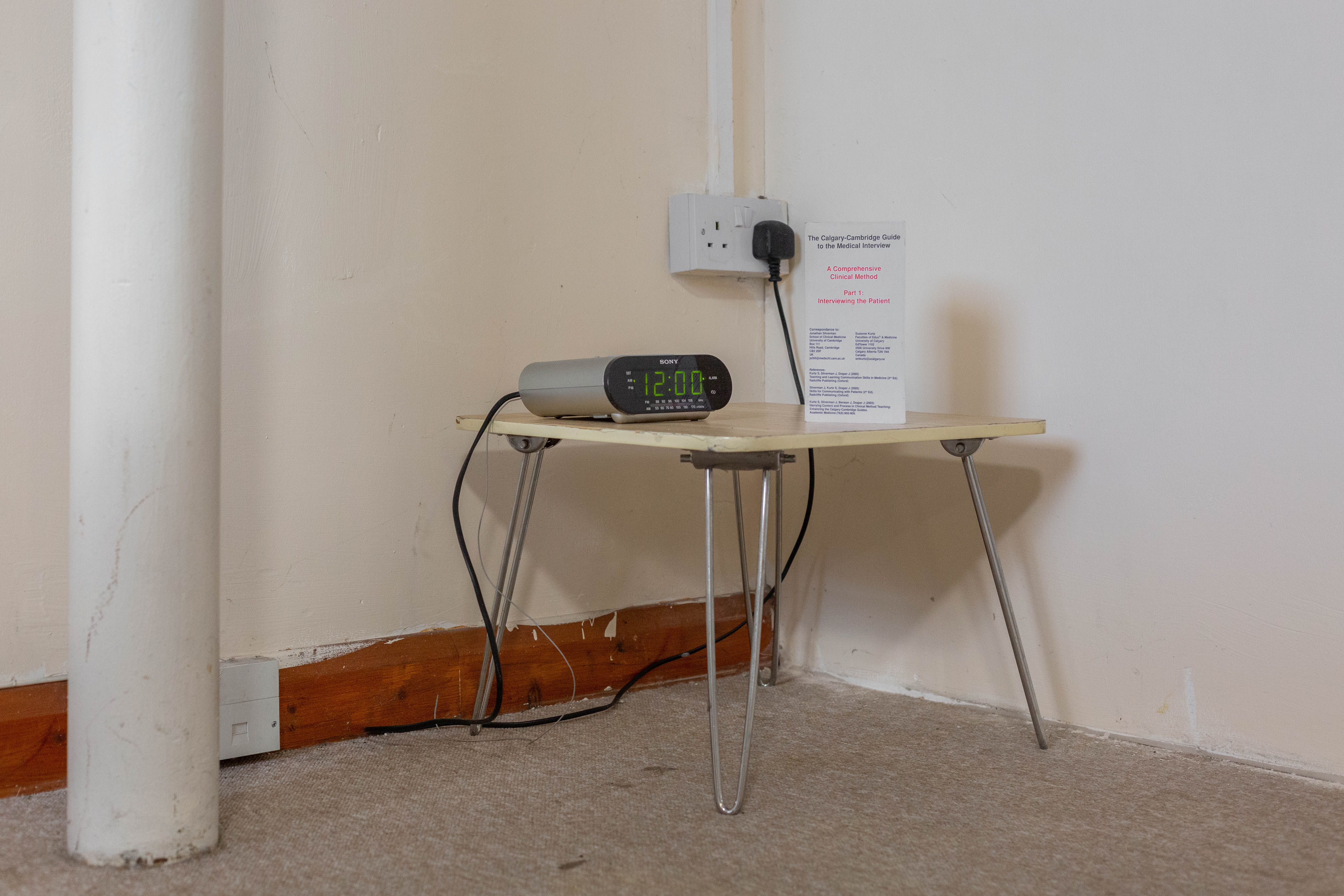
“Another thing you do is you call one of these guys the master and one of these guys the subject which are interesting terms to use right for these two people… yeah the subject - like they’re an experimental subject… and the master, like the one doing the helping owns the other in some way … but these two guys, I feel like one of them’s performing these activities on the other right but they’re sort of activities of support when this other guy can’t really fend for himself, when he can’t really manage alone… when he can’t really do the things that are basic and necessary for life like breathe and keep his own airway open and float and move and get towards land or get out of water you know… this other person comes in… and does that make him automatically the master or does that make him kind of… or does coming into that support position make him kind of the subject at the same time… it’s like when you’re working in a care capacity say you’re a doctor - I don’t ever feel like a master and in fact in a weird way I feel more like there are obligations on me and I sort of feel a bit like a subject… it’s like the person is in a vulnerable position but you kind of end up sharing that with them… they reveal something and I need to respond - I need to listen to the history I need to feel the body I need to take this blood I need to chase the values I need to book an x-ray I need to interpret it I need to get them some toast cause they’re hungry I need to fold over the pillows because they feel in pain when they’re lying too flat you know and if you don’t do those things then you haven’t done your job, you haven’t done the thing you’re meant to do, you haven’t done the reason you’re getting paid and you haven’t done the reason you’re doing the career and you’re not satisfying the reason they’ve come to see you… or they’ve come not to see you personally but they’ve come to see someone who will care and will do those things… at the same time I’ve been a patient and I realise how powerless you feel as a patient lying there in a bed say and not being able to move and not really having anything happen around you just sort of sitting there all day every day without anyone really seeming to care and kind of waiting for someone to come along and say wow you’re in a lot of pain… but when I’m doing it, when I’m in it it feels like I’m the one who doesn’t have any individual power or individual control… my actions depend on this other person… and sometimes I think in a way that kinda makes me the subject too…”
Excerpt from transcript of voice memos between Adam Hines-Green and JJ Lincoln, printed and presented on board room table.
Photos by Henri Kisielewski.